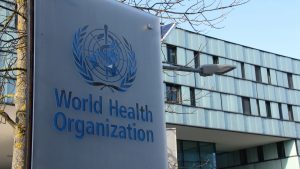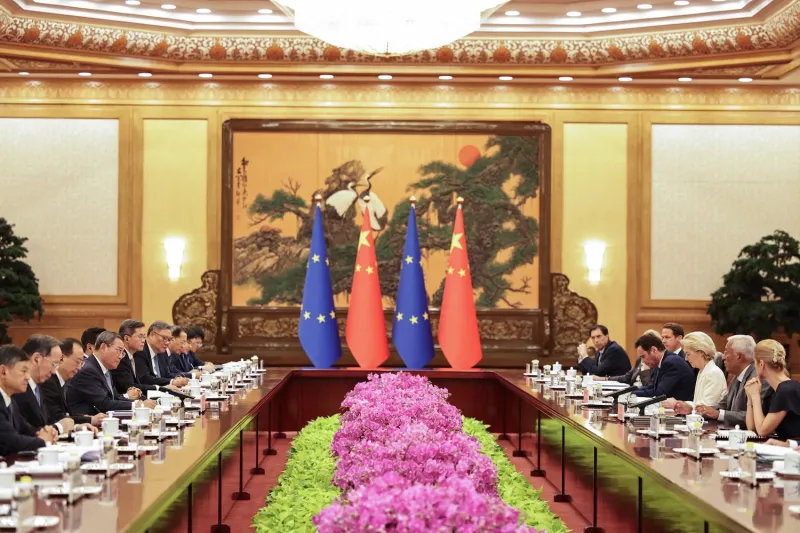Step up int’l cooperation to curb the COVID-19 pandemic
CGTN | March 12 , 2020
China’s COVID-19 pandemic is now effectively under control after a two-month battle, with an orderly resumption of business and production underway in most parts of the country.
On March 10, China’s President Xi Jingping arrived in Wuhan, the capital city of Hubei Province, to inspect the effort in containing the virus. It is evident in his inspection that the central government of China attaches great importance and caution to the work of virus containment.
Currently, of at least 80,000 confirmed cases in China, more than 70 percent have been discharged from hospitals; and more than 200 cities in the country have had all existing COVID-19 patients cured.
In contrast, COVID-19 is rampant beyond China’s boarder with an official declaration of a pandemic by the World Health Organization (WHO). By the end of March 11, 2020, statistics released by the WHO showed that there are nearly 120,000 confirmed cases, globally.
Since the outbreak onboard the Diamond Princess cruise ship, the Japanese authorities have had a better understanding of the importance in containing the virus. The country therefore declared state of emergency amid the pandemic.
The neighboring South Korea had a major outbreak due to a public gathering despite government warnings. The country now has the fourth largest number of confirmed cases in the world, next to China, Italy, and Iran.
The spread of COVID-19 in Europe is just as worrying. The number of confirmed cases in Italy is now above 10,000, forcing Prime Minister Giuseppe Conte to implement a total lockdown of the country. Sadly, people across Europe still believe that wearing a mask is unnecessary despite the severity of pandemic.
Things are even more confusing across the Atlantic, as the U.S. authorities downplayed the harm of COVID-19 in order to stabilize the economy, triggering widespread public objection.
Nevertheless, Dr. Tedros Adhanom Ghebreyesus, Director General of the WHO, stressed that proliferation can be slowed down as long as immediate and decisive actions are taken.
Evading responsibility and denying facts is quite inadvisable for governments all over the world, with the global challenge now too great to be ignored. Countries should now consolidate their efforts to counter the pandemic, so as to put the world economy back on track as soon as possible.
Firstly, response to the pandemic should be given higher priority with advice from the WHO to contain the virus. Countries with massive-scale infections such as Italy, Iran, and South Korea should implement stricter testing guidelines and necessary quarantines to minimize the damage to their people’s lives and health and contain the spread.
Besides, China’s experience of combating the virus can be shared among countries and global-scale cooperation to develop new therapies and a vaccine. As COVID-19 starts to spread into countries in underdeveloped regions, or without effective counter-measures, sufficient expertise and basic supplies should be provided to them through international cooperation.
As a country with rich experience regarding the virus, China on March 11 has sent a medical expert team to Italy to help fight the pandemic and bring humanitarian relief supplies to support Italy in fighting against the COVID-19.
Another important point is that prejudices and disputes should now be put aside to stabilize the world economy. COVID-19 is beginning to take its toll on the world economy, which is exemplified by stock market plunges and shocks to value chains and supply chains worldwide.
Under such circumstances, mutual understandings are needed amongst countries; and stronger cooperation in value chains and supply chains should be seen on a global scale to ensure the free flow of goods and services between countries.
Moreover, confidence in multilateral cooperation can be boosted by working together to combat the virus, laying a foundation for a global governing system in the future.
Globalization is an irreversible trend, under which countries should join efforts to build a more comprehensive global health emergency response system. Confidence can be built up in international cooperation and thus future challenges can be dealt with internationally in a more coordinated manner.
COVID-19 is a challenge for all, and to international collaboration and development as well. Countries need to identify the true enemies threatening our sustainable development, and bear in mind a shared future for mankind in collaborating to construct a more inclusive and fair world.
Recommended Articles
-

Wang Huiyao: Beyond Blocs-Europe and China will not align nor compete, but selectively cooperate
-
Wang Huiyao: Key lessons from China’s ascent over the past 25 years
-
Wang Huiyao: Key lessons from China’s ascent over the past 25 years
-
Wang Huiyao: China and Latin America: Partners in a shared new era
-
Wang Huiyao: Only a multipolar coalition can secure Ukraine peace